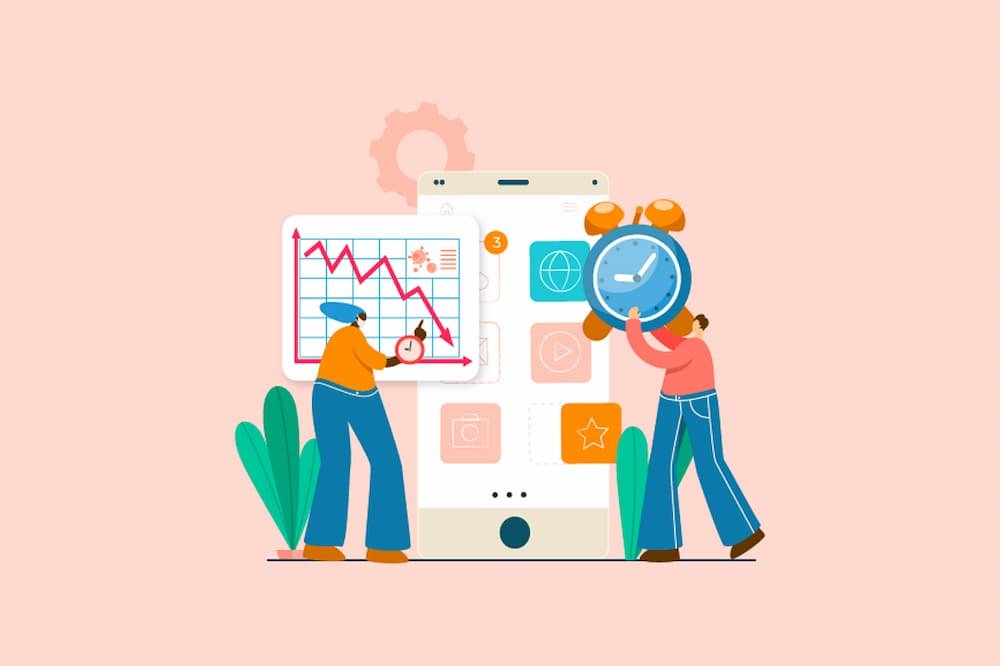How to Use Personality Assessments In the Workplace To Create a Career You Love
I’m a big fan of using personality assessments in the workplace—to find the opportunities that suit your unique style and thrive once you get there.
When used correctly, personality assessments provide valuable insight into your career preferences, strengths, and interests.
They’re effective tools because they shift your focus from what you have been doing to what you like to do and want to do.
Our current circumstances are powerful forces that often pull us away from our true wants and best selves, so assessments can reground us in what’s most important.
But, as with all tools, they have their limitations.
I often hear comments like, “This assessment was spot on, but how do I use it to find a j-o-b?” or “Great that I know my strengths, but how does this translate to real-life career paths?!”
It's critical to understand how personality assessments can help and hinder you when it comes to your next career move.
So let’s first talk discuss how to effectively use assessments in general, then I’ll share my 3 favorite assessments.
Use Personality Assessments To Get Clues, Not the Ultimate Answer
Before we dive into how to use my favorite personality assessments in the workplace, here are some ideas to keep in mind.
A. Understand the context
When it comes to decoding assessments, context is key.
Your current environment can skew the results because it predisposes you to work a certain way or rewards specific behaviors.
Likewise, your own biases can come into play—like overemphasizing the qualities you think are valuable to others and downplaying the ones you don’t.
The best advice I ever received was to complete assessments outside of work with a glass of wine.
Whether you decide to imbibe or not, the point is to remove yourself from unconscious workplace influences when you take the assessment.
You want to find out who you are at your best most-authentic self, not who you think you’re supposed to be.
I once did a Myers-Briggs assessment with a team of 15 people. They all came up as having the "Judging" trait, which is about clarity, control, and planning.
This makes sense, as we were a team of Project Managers, where those traits were considered “valuable” and critical to their success.
The problem? It was clear that many on the team were "Perceivers," which is all about options, possibilities, and flexibility.
In this case, the requirements of their role overrode their actual preferences. 😲
This is important because the wrong environment can lead to you suppressing the very talents that set you apart.
Plus, it’s a missed opportunity for the team to hear different perspectives and actually leverage different strengths that lead to better solutions.
My team could have really used more Perceiver talent to make us pump the breaks and ask the important questions about whether the solution we were driving toward was actually the best one.
We’ve all squeezed ourselves into a box that doesn’t quite fit. And that leads to stress, unhappiness, and unfulfillment.
Remember: you want results that show how you like to work, especially if different from how you’re currently working. We want to shift from “I could do that” opportunities to “I WANT to do that” opportunities.
B. Don’t get caught up in the labels
Use your personality assessment results as a springboard to understand how you can apply them to your career.
They’re simply a starting point for you to use in a way that works for you.
Don't get caught up in the labels. Or what is "right." Or what you think is most marketable or valuable.
Personality assessments hold critical clues to what will make you fulfilled in your career and connected to your purpose.
Give me any strength or personality type, and we can find plenty of people that value it and multiple career options that honor it.
The only wrong answer is ignoring the clues the assessment is handing to you.
Once you get the results, get curious!
The assessments simply play back the answers you gave.
When using personality assessments in the workplace, rather than dismissing an answer you don’t like or accepting it at face-value, go deeper. What might be going on that brought that answer to the fore?
C. You are not your personality assessment
Just because you show up with a certain type or strength or disposition, doesn’t mean you can’t operate any differently.
These personality assessments show your interests, tendencies, and preferences.
They are NOT the sum total of your abilities nor are they a measure of what you can achieve.
Now, let's explore how to use my three favorite personality assessments in the workplace.
How To Use My Favorite Personality Assessments In the Workplace
1. 16 Personalities
16 Personalities is a personality assessment based on Myers-Briggs, which is based on Carl Jung’s theories of personality.
(16 personalities also describes my mood swings on any given day.)
You can take the free test here.
The test uses 5 different spectrums:
Mind – How you interact with your surroundings (Introvert vs Extrovert)
Energy – How you see the world & process info (Observant vs Intuitive)
Nature – How you make decisions & cope with emotions (Thinking vs Feeling)
Tactics – How you approach work & decision-making (Judging vs Prospecting)
Identity – How confident you are in your abilities (Assertive vs Turbulent)
Great. Now how do you actually use this personality assessment in the workplace?
Many people make the mistake of trying to use it to directly divine their profession.
While this might work for some, it can also be too constrictive or too plain nebulous to draw a straight line from the assessment results to a job title.
I’m an INTJ, and according to 16 personalities, I’d make a great engineer, lawyer, or project manager.
If you love those options, great! But they’re not interesting to me at all.
Plus, reading the descriptions at face value kind of sounds like INTJ’s should be locked away in a room, isolated from other humans, as they scheme and plot their way to world domination.
(The profile literally says fictional villains are based off this personality type).
The reality of how our personality traits show up is much more nuanced.
If I hadn’t dug deeper, I never would have found my way to becoming a Coach.
I used the assessment initially to find clues about HOW I like to work:
Maximizing creativity and laser-focus (Yup)
Low-profile but influential role (Absolutely)
Transforming complex ideas into clear and actionable strategies (Uh huh)
Solving meaningful challenges and finding elegant solutions to important problems (💯)
Rejecting authority, conventional wisdom, and rules that don’t make sense (Sounds about right)
My current role as a business-owner ticks all these boxes, but so did various roles in my corporate career.
The key was to focus first on HOW I like to work, then look for roles where the WHAT was also appealing.
For most of my corporate roles, WHAT I worked on was much less important than HOW I did it. I didn’t mind being plugged in anywhere as long as I could work HOW I wanted to work.
But a big piece of purpose and fulfillment was missing because I didn’t care at all about the subject matter and working for a bank crushed my soul.
Running a coaching business is my dream job because it combines the WHAT and HOW I love.
Your turn.
Take the 16 Personalities Assessment and mine your own descriptors for clues as to your HOW.
Think in terms of what you'd like the following to look like:
Interactions with your boss and co-workers (…if you even want them)
Interactions with your clients/customers
Flow of work, and where you fit into the process
Your place in the organization (in terms of influence, not org chart)
How you spend your time
Once you have a clear sense of HOW you want to work, get super clear on a few potential WHAT’s:
The impact you want to make
The people you want to serve
A cause you want to further
A goal you want to reach or help others reach
Activities you enjoy that energize you
Thinking through the above points will be a great starting point to help you effectively use the 16 personalities assessment in the workplace.
2. CliftonStrengths Assessment (Strengthsfinder)
The CliftonStrengths Assessment helps you tap into the best version of yourself. It’s one of my favorite personality assessments to use in the workplace because it reveals HOW you operate at your best regardless of WHAT you do.
It uses 34 strengths across 4 domains: Strategic Thinking, Executing, Relationship Building, and Influencing.
Find out your top 5 strengths here.
(Opinion: you don’t need to lay out extra cash for all 34 strengths. This will muddy the waters and dilute the power of your top 5.)
The CliftonStrengths assessment focuses on understanding what you’re uniquely good at. It’s a great way to help you find a career that capitalizes on what you—and only you—bring to the table.
If your organization still gives semi-annual performance evaluations, you might have noticed that there are some things you're not particularly good at that tend to show up year after year regardless of how hard you work to address them.
Many organizations focus on the gap à la, “If only you could do x, we’d be happy to promote you,” or “Focus on fixing y if you want leadership to take you seriously.”
While I’m an absolute believer in identifying and addressing the barriers that keep you from getting what you want, it’s far easier to become great at something you’re already good at rather than trying to be good at something you’re not.
Enter CliftonStrengths Strengthsfinder. It helps you target the ways of working that you’re best at (and likely that come most naturally to you).
By starting with your strengths, you can zero in on the roles, organizations, and people that put a premium on what you already do best and screen out the ones that don't.
Here are the specific areas of focus to zero in on the type of work that plays to your strengths.
Identify strengths that you also enjoy
As I mentioned earlier, personality assessment results can be skewed based on the context of your environment: the culture, the role, the people, and other circumstances.
High-achievers are often recognized for strengths we don’t actually enjoy.
You might be super-talented at dealing with challenging clients. Or great in an emergency. But if you had a choice, would you ever want to do those things again?!
Because you’re so good at so many things, you can quickly become associated with a particular type of work because you do it well.
That doesn’t mean you enjoy it.
Yet the more you do it well, the more you develop a reputation for work you may be really good at but doesn't serve you.
For each strength, go as deep as possible to find specific examples where the strength was honored and where you enjoyed working in it.
Sometimes it’s just about focusing your strength on the right type of work, but sometimes it’s that you really don’t like working in that strength.
Early in my career, I happened to be good at project management, but I found the details anxiety-inducing and the inexorable march to the due date mind-numbing.
I realized I prefer to work with the bigger picture, design the solution, then hand off to someone who revels in thinking through the details and shepherding projects across the finish line. Once I knew this, I could draw the dividing line between work I loved and work that drained me.
It’s the difference between finding work you CAN do as opposed to work you LOVE to do. It’s the latter we want, so if the only time a strength shows up is in work that you don’t enjoy, drop it.
This is why it’s so important to understand how to use personality assessments in the workplace.
Put strengths in terms that are meaningful to you…and communicate your value
Another mistake people make with personality assessments in the workplace is not moving beyond the label. For example, “strategic” might show up as a top 5 strength for many people.
But how you’re strategic versus how I’m strategic can look very different. It’s that difference that sets you apart.
And that nuance can lead to career unhappiness if you’re not clear on how you apply this strategic skill.
Put your skills into your own terms by asking, “What does being strategic look like in my day to day? What do I like about it? What are the examples where I felt the most free to be strategic?”
Part of the reason people struggle with these labels is that they don’t know how to translate them into descriptive language that is meaningful to them and helps others understand.
For example, Person A walks into to an interview and explains that they’re “an innovative, strategic thinker.” Person B walks into an interview and explains, “I can’t help but save companies money and make their processes much more efficient.”
As a hiring manager, I would get a very clear snapshot of what Person B does and the value she brings. This pithy description is far richer than buzzwords we typically see on CVs or use to describe our strengths in interviews.
Those things you “can’t help but do” are often strengths you enjoy and can be clues as elements you want to bring into your new role.
Understand how your strengths work together
Don’t just look at your strengths individually; examine how they work together to form a way of working that is completely unique to you.
A person who is great at spotting relevant paths and issues by inspiring others with a vision for the future (“strategic" and “futuristic,” according to Clifton) will likely want different career attributes than someone who is great at spotting relevant paths and issues by understanding the present through researching its history (“strategic” and “context” strengths).
This is a great way to use personality assessments in the workplace to further differentiate yourself.
3. Energy Leadership Index Assessment
This is my favorite assessment and the foundation of my coaching approach.
The Energy Leadership Index (ELI) measures potential.
And it starts with the idea that everyone has limitless potential…once you understand who you are at your best and truly lead from that place.
While 16 Personalities and CliftonStrengths give you great clues as to what strengths and preferences you can leverage as a leader, they don’t really give you a practical path to how to lead better.
Energy Leadership helps you understand what energizes you and depletes you in the context of your career.
It provides a practical framework you can use to show up authentically and consciously tap into things like flow, peace, and ease—and then find the career options that align.
I use it to help clients manage the career transition process and succeed once they make their move.
The ELI is an attitudinal assessment, so it’s not fixed.
It gives you a snapshot of how you typically show up, plus the triggers and patterns that keep you stuck, so you can change them.
It’s about recognizing how much power you truly have to create the career, life, and day-to-day circumstances you want.
I use the Energy Leadership approach because I want my clients to be great leaders of themselves and others—even once they land their dream roles.
It highlights your strengths, but also illuminates how those strengths can actually work against you in the wrong context.
I first took this assessment almost five years ago, and I still use it every day because it’s given me a framework (INTJ’s love a good framework) to choose what perspective I want to bring to any situation.
If you’re interested in understanding more about how to identify your unique leadership approach and design an action plan to take control of your career, apply for a free strategy session.
4. Bonus Assessment: 5 Love Languages
I know, I know. I said I’d share my 3 favorite assessments.
But as a bonus #4, I also want to plug the 5 Love Languages.
It’s a great way to understand how you like to give and receive.
What is the workplace if not the sum of our collective ability to give AND receive in meaningful ways?
You can change A LOT in your career simply by asking for what you want and need…and finding the win-win between your wants and needs and other’s.
What's Your Favorite Personality Assessment To Use In the Workplace?
There's no single personality assessment that will give you all the answers and lead you directly to the perfect career.
Choose the one that appeals most to you and start exploring.
Or try blending your results from 16 personalities and Strengthsfinder to deepen your understanding.
Understanding my INTJness in the context of my top 5 strengths (Futuristic, Strategic, Relator, Intellection, Maximizer) took my understanding of how I like to work and the things that differentiate me as a coach and business owner to the next level.
The key to using personality assessments in your career is going beyond the initial results to dig deeper into understanding yourself and what you want to bring to your role, organization, and people you serve.
Treat assessments as the starting point, not the destination.
I'd love to hear about your favorite personality assessment or any other tool you've used to help guide you with your career decisions.
If you’re ready to use personality assessments in the workplace and connect the results to real-world career opportunities, download your free 4-step career roadmap. It lays out the path to get clarity and get out of your own darn way.
Author Bio:
Before becoming a coach, Caroline had a successful career in management consulting and financial services. She's made it her mission to help people grow, contribute, and get wherever they want to go.
Caroline wants you to recognize how much power you truly have to define your career. The life and career you want really is possible once you have the roadmap. Take the first step by downloading your free career roadmap.







